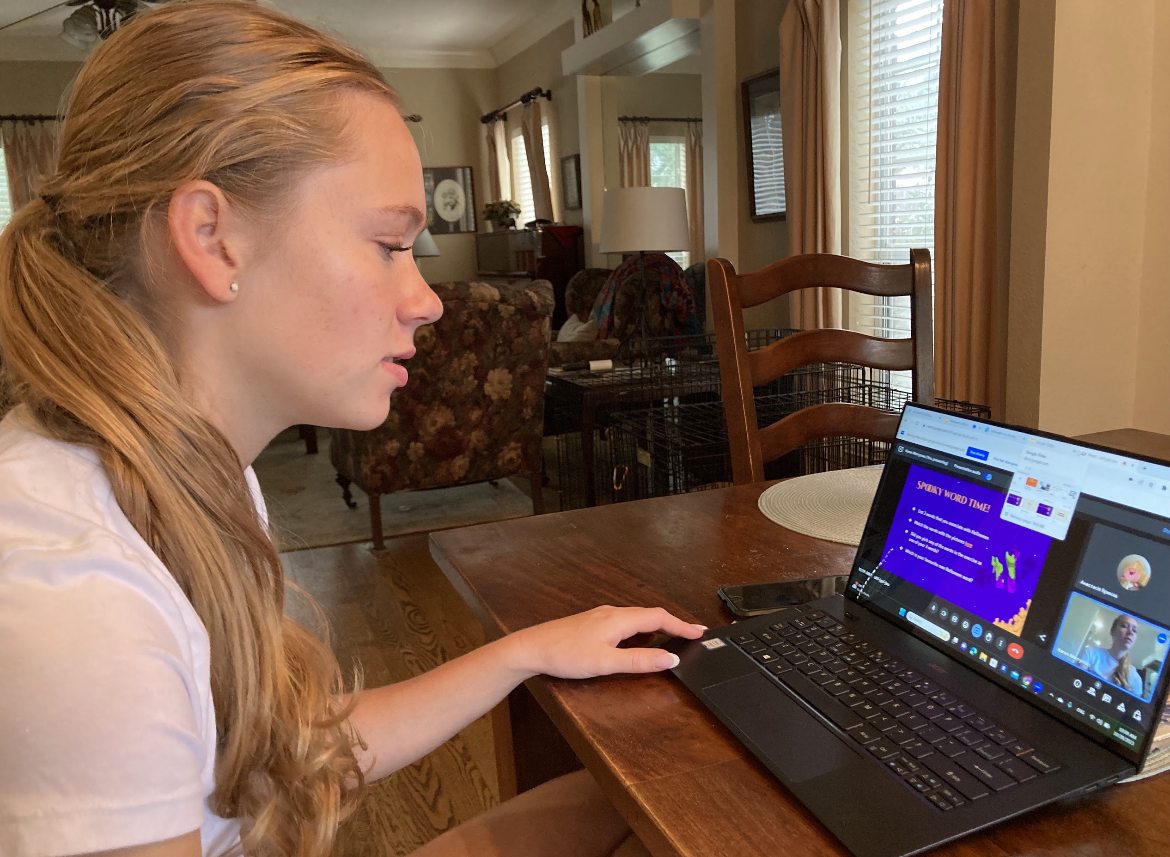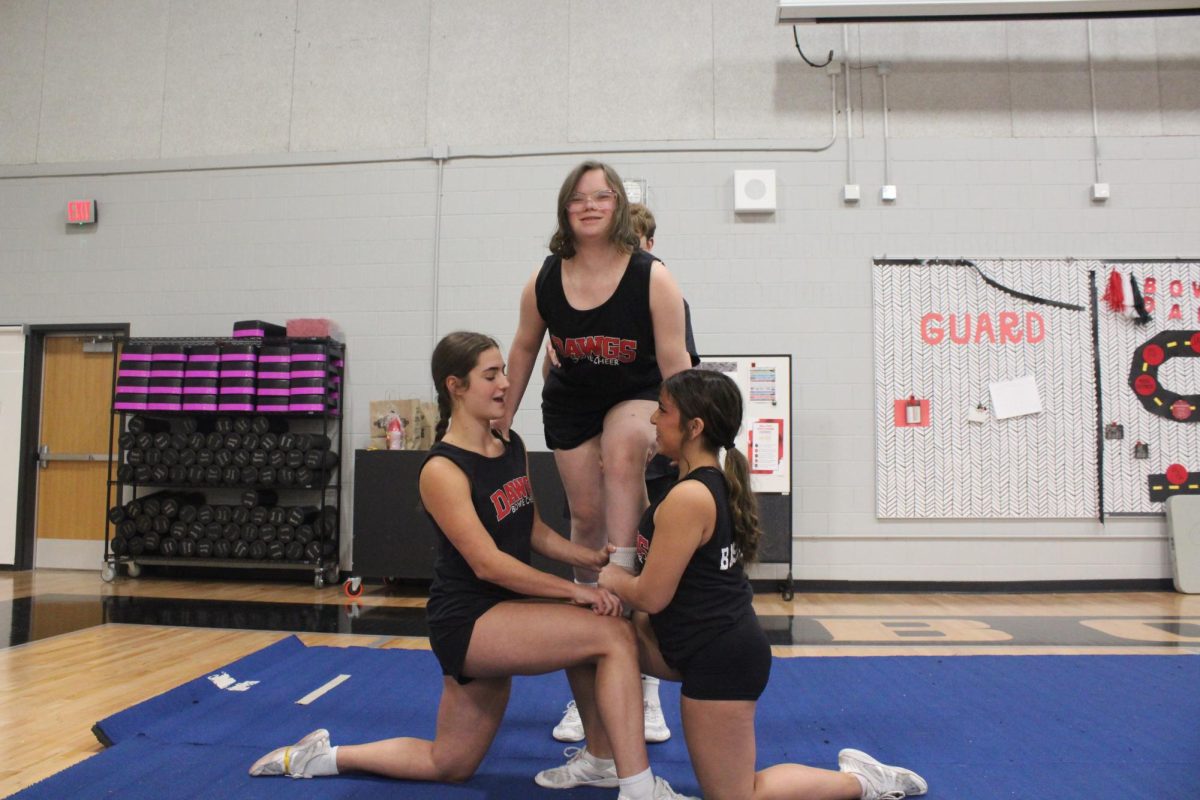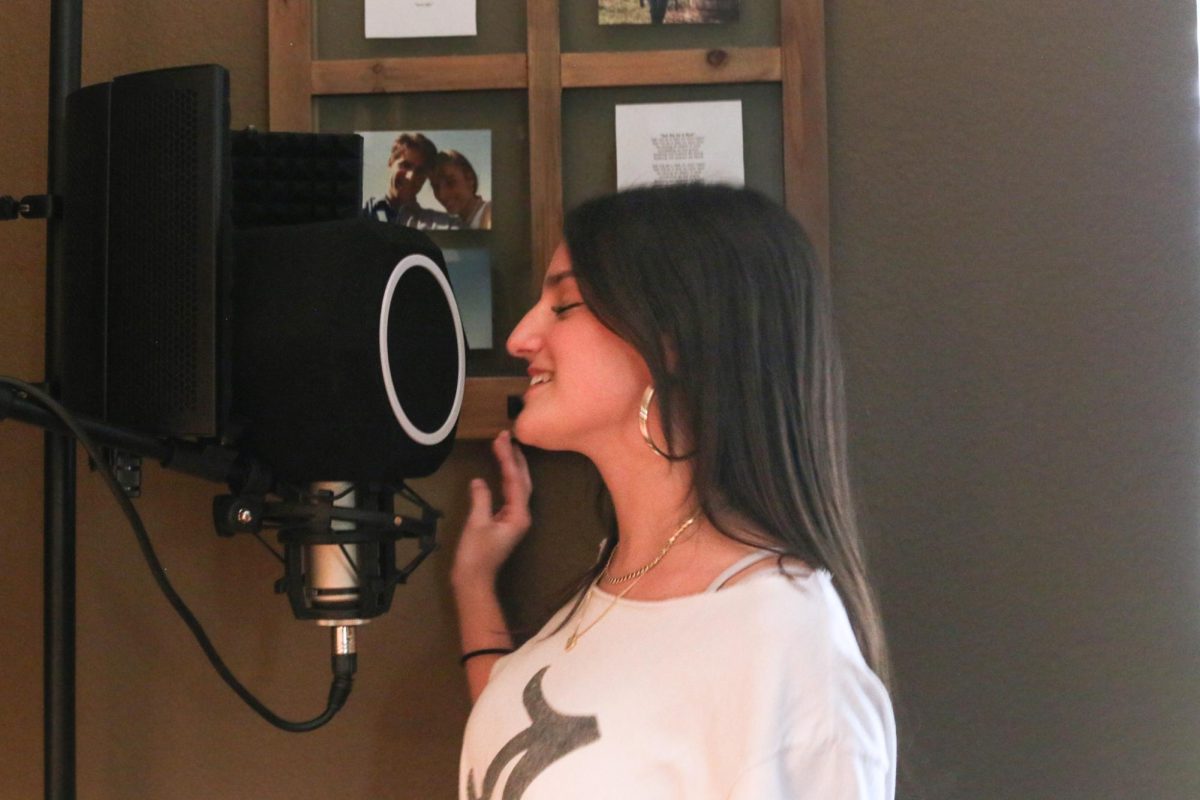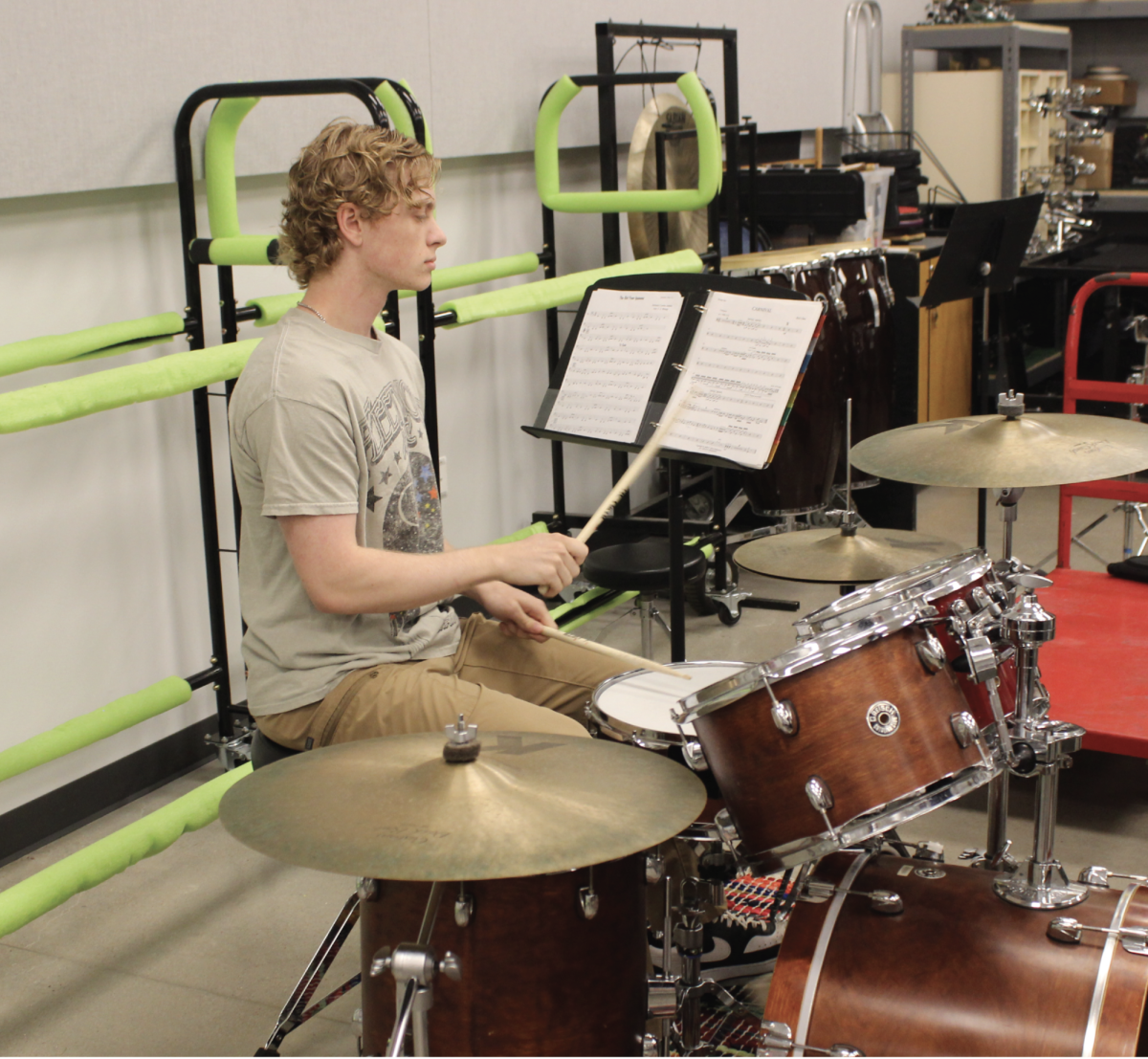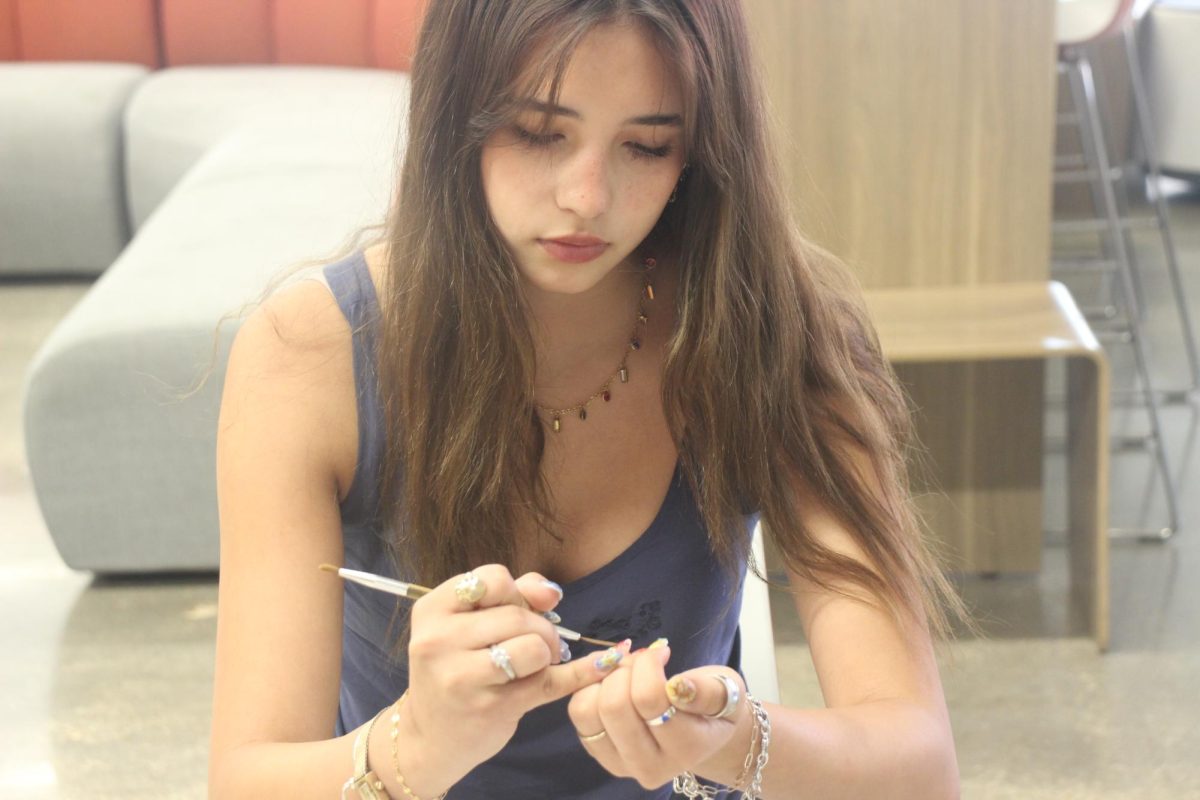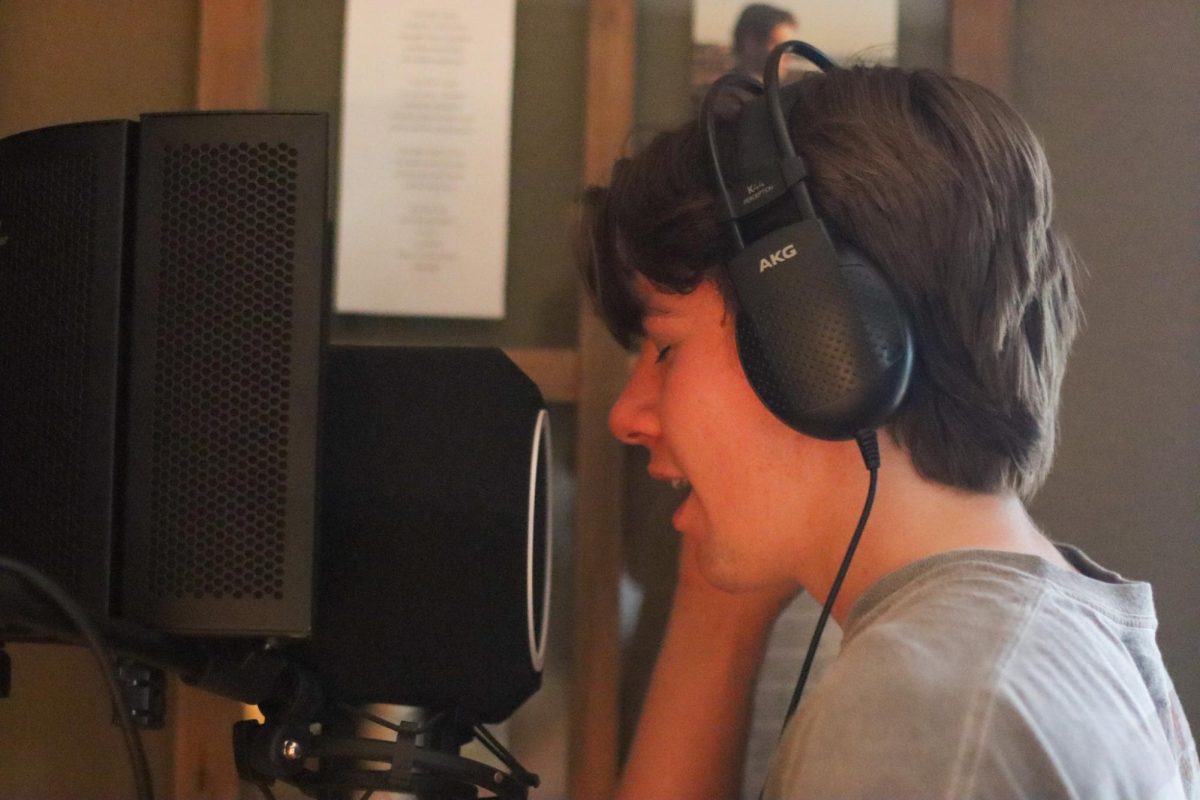Birds chirping, light shining through the window, senior Karen Merryman sets her computer on the table. After double-checking her presentation, she opens up GoogleMeet and sees Anastasia Brynzas’ smiling face, ready to study the English language.
ENGin is a nonprofit organization that pairs Ukrainian youth with English-speaking tutors for free conversation practice to improve their dialect. Merryman has been a part of the program for nine months.
“I had a friend who was doing the program,” Merryman said. “I was like, that sounds cool, you should send me the link for that. Then that following month, I submitted my application and set up an interview.”
Merryman responded to the questions over personal facts and preferences to find a partner who seemed most compatible and close in age. Shortly after the interview, Merryman and Brynza shared emails to set up their first formal meeting.
“I love that Karen is making contact with someone from another culture and getting to know her,” Merryman’s mom, Shelley Merryman said. “I think it is important to know people from other cultures and I hope that Karen’s Ukrainian friend will grow in confidence and skill as she practices English.”
Before their first meeting, Brynza knew how to speak some English, while Karen did not speak any Ukrainian. Despite the language barrier, the two have formed a friendship, and have figured out how to approach their lessons for the best results.
“Thanks to her, I learned a lot of new words, some phrases and most importantly to think in English,” Brynza said. “It has been much easier to communicate and understand each other.”
ENGin’s goal is to provide a safe learning environment for all Ukrainians looking to learn more about the English language. According to junior Charis Hill, this program has not only offered a way to support Ukraine but also allowed her to form friendships.
“I tutor a girl named Anastasia Zhuk. She’s 18,” Hill said. “We have a lot in common. A lot of times I try to find fun topics that are easy to have a conversation about. Most of the time we end up talking about fashion and other stuff that we have in common. I didn’t know a lot about their culture, just the basic things. I’ve learned a lot of interesting things just from creating lessons, even if it’s not directly related to Ukraine.”
Hour-long lesson plans are shared with the tutors to help prepare for meetings. The topics vary from American holidays, movies, fashion, and much more.
“I’d like to wait for them to put up a Halloween lesson because I want to do a slideshow on Halloween,” Karen said. “I do a presentation that I screen share that has the questions on it so she can read and hear it. I found it easier since orally speaking is just me saying it and like her just listening and that can be difficult, especially with an internet connection. I think that made it easier when we first started. I even had Ukrainian translations on the slides but now we’ve moved past that.”
While the internet has provided Brynza with educational opportunities, the distance has still provided difficulties.
“I think that the time difference is around nine hours,” Karen said. “I have to wake up pretty early, and her meeting time is sometime in the afternoon. Then sometimes the connection gets weird, and I’ll see her screen glitching out a bit with lines and errors like that.”
Not only has the physical distance provided challenges but the cultural differences create communication difficulties.
“Sometimes it’s hard for me to get a certain point across,” Hill said. “Or if I say a certain word, and she doesn’t know what the word is, I don’t know what the Ukrainian equivalent is. I have to rephrase a lot of stuff and sometimes that’s hard. I like to make slideshows, but when I write topics out, sometimes it’s hard for her to understand and then it’s hard for me to rephrase it.”
Despite the difficulties, the two pairs continue to persevere through complications to expand the student’s English vocabulary.
“I definitely have seen improvement,” Karen said. “Originally, conversing was very difficult and I would use Ukrainian translations on the slides as well. Now I know I’ve taken off the Ukrainian translations, and we’re doing well. I haven’t pulled out Google Translate in several months now. Conversing is hard; it takes her a minute to respond and gather her thoughts. Sometimes I compare it to when I took Spanish and I was never very good at speaking it. I can see her improvement because I think of myself and how much I suck at Spanish. Sure maybe she is taking a while to respond but that’s okay because I remember how hard it is to pull out a language from the dregs of your memory.”
According to Brynza, the meetings with Karen have improved her ability to hold a conversation in English in just the few months they have been together.
“I remember many interesting and funny stories with her,” Brynza said. “I love that moment when you can quickly give the correct answer in English and I am very grateful to Karen for her help, she is really great.”
Not only does ENGin provide Ukrainian students with the opportunity to learn conversational-based English, but it also teaches the tutor leadership skills along the way.
“She has grown a lot,” Hill said. “Especially with becoming more comfortable with words and phrases. I’ve also become more comfortable with correcting her and not feeling bad about it. At first, I felt so bad, that I would say, oh sorry this is how you pronounce it. But now I’ve become more comfortable with correcting her and not feeling sorry for doing it.”
Amidst the current conflict between Ukraine and Russia, the program additionally assists in keeping the spirits of young Ukrainian students high.
“You can just tell that she thinks America is like an incredible place,” Karen said. “We have our issues, but I think it’s just cool to see from an outside perspective that America is still a very free, wonderful place to live, especially in comparison to what they’re going through right now. I just think it’s cool because I have been able to sort of expose her more to American culture so that she learns more about the culture from an inside point of view.”
According to Charis, their weekly meetings provide insight into their daily lives and issues faced while living near Kyiv.
“Sometimes she will come to our meetings and say ‘Oh school was canceled today because of the warfare’,” Hill said. “Right now with everything going on there, I think having that outside connection kind of makes you more aware of their situation. You learn about Ukrainian culture and traditions, and the differences and similarities we share. There’s a lot of things that are the same that you just wouldn’t think of.”
These connections transfer to many of the slideshows Karen and Hill utilize for their tutoring. According to Karen, she often uses the PDFs provided by ENGin and converts them into Google Slides.
“Charis and I sometimes share our Google Slides,” Karen said. “It makes life easier. I’ve even done one where we both watched the Tinker Bell movie and then I made a presentation on Tinker Bell for the next session. We watched them separately and then we talked about it in the next lesson, it was fun. She loves Tinker Bell too, I thought it was sweet how we both grew up watching it.”
This upcoming February will be Karen and Brynza’s year-long anniversary of tutoring.
“Connecting on a very personal level is kind of hard over Google Meet where we are meeting like once a week for an hour,” Karen said. “But I feel like we have become a lot more comfortable with each other now than we were at the beginning of the year. I feel like if I ever get the chance I would love to meet her in person one day. There may be some limits but I do think we have a good relationship.”




